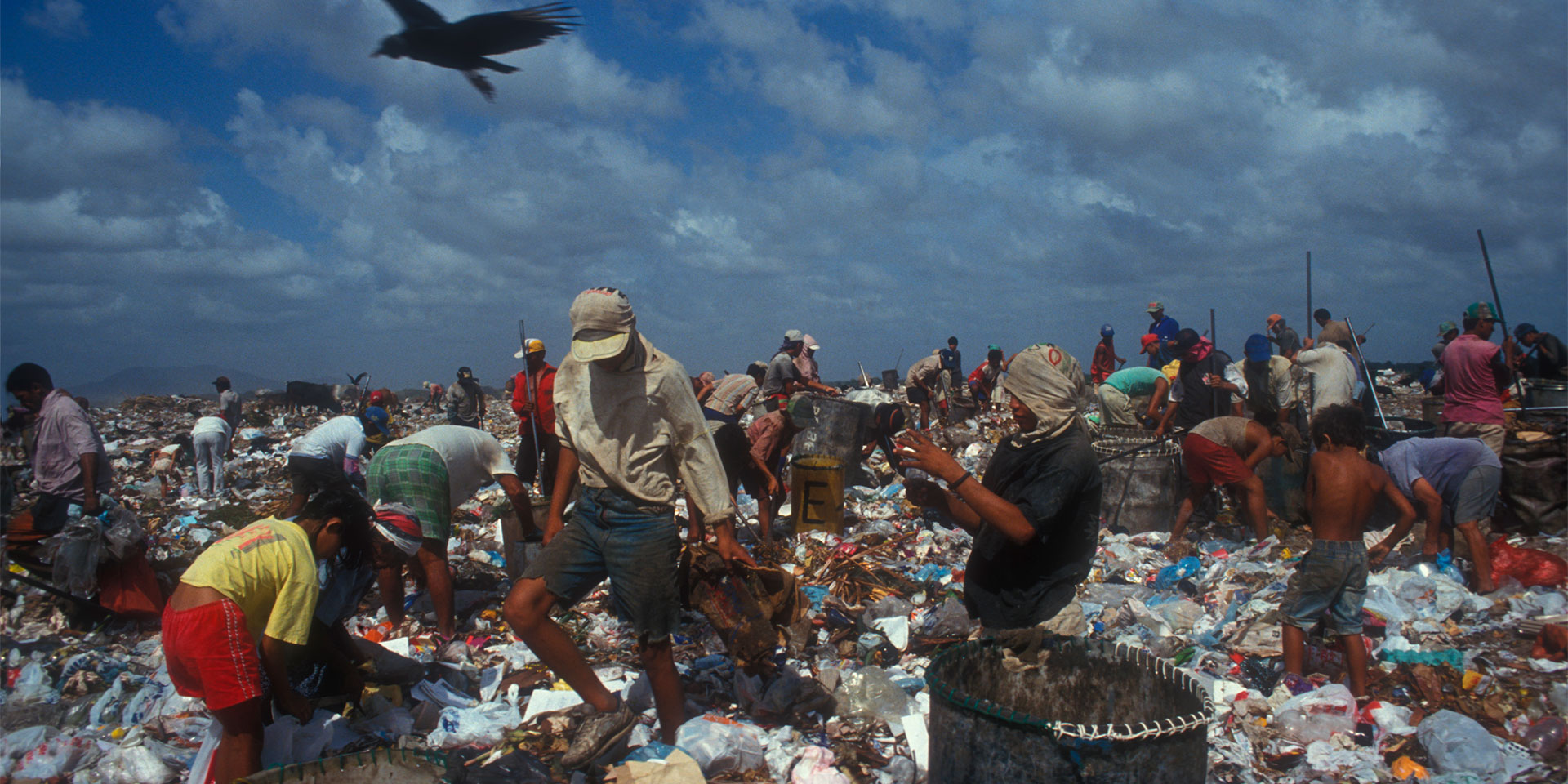We deem what they do worthy of pity or contempt. We see them searching through the garbage, gathering plastic or aluminium in bags, without realizing that they are part of a group of 15 million people globally who turn waste into honest income and who, involuntarily, care for the environment. Among them is Yassine Mazzout. Garbage not only saved his life, but transformed it.
Yassine grew up in Akreuch, close to Rabat, the capital of Morocco. His town is unofficially regarded as the landfill of the capital because all the waste from the larger cities nearby is discarded here. Many residents have lived off the rubbish, but fortunately Yassine was protected from this painful reality as a child.
He was 15 when his father, a bus driver, died. The responsibility of providing for his family fell on his shoulders. His mother, two sisters, and younger brother all relied on him. He did not have any other option than to sort waste. During the day he would go to high school classes, at night he would search through the garbage. “At 15, I should have spent my evenings playing with other kids. But I spent all of my free time [at the landfill] to make money for my family.”
He was struck by the painful and dangerous reality of those who searched through the garbage. Some of them lived right by the garbage landfill and risked their lives every day. Within the garbage one would also find medical or industrial waste and many died of infections. Some people lost their limbs due to heavier pieces of garbage falling on them. Yassine remembers a little girl who was run over by a garbage truck. Aside from all of these dangers, there were also people who followed those who collected valuable waste and robbed them at night. It was a jungle where everybody did their best to make ends meet.
Despite the dangers, he managed to support his family from this for a long period of time. “In total, I worked for 11 years. The conditions were catastrophic: when it rained it was difficult, when the sun was shining, the same. It was also dangerous, especially at night.”[1]
In 2010, at the World Bank’s initiative to protect the environment, the landfill was closed. This left hundreds of people without any means of survival, including Yassine.
Things took a positive turn when the government decided that those who had previously been scouring the garbage would work in the new waste selection line. They previously used to fight among themselves for the best pieces of waste; now they could become co-workers. They were offered the chance to set up a cooperative and use the income as they saw fit.
The people took advantage of the opportunity and chose Yassine as a leader of the cooperative. He was the best fit for this role, as he knew their needs very well, and he clearly had leadership skills. He was calm, intelligent, and a visionary. They named their cooperative At-Tawafouk, which means “trust”. Within the cooperative they decided that the number of working hours would be equal for everyone. Decisions regarding the use of extra income would also be taken together.
The working conditions at the new landfill cannot be compared to the previous conditions. They now have a covered area in which to sort out the waste so they no longer needed to worry about rain or sun. Medical or industrial waste is no longer allowed. They have a stable salary that allows them to not worry about tomorrow, they benefit from medical insurance and transportation, and they only work 6 hours a day. Above all, they have regained the dignity they lost amongst the garbage.
Yassine is considered a “superstar” by his co-workers. He managed to do amazing things, and contributed to the development of the recycling centre. He invested the extra income in buying new trucks and technologies that could make their work easier. Gerard Prenant, the manager of the French company who facilitated the transition to the new recycling centre, also admires him: “Yassine was not what you would call in French a ‘Benny Oui Oui’—like a doormat. When you suggested something, he wouldn’t just say yes. He defended the interests of the cooperative. But we always found a compromise, and it allowed us to innovate this kind of relationship.”[2]
Today, the recycling centre is one of the biggest in Morocco and is a model that the World Bank intends to continue to use. In Morocco alone, another 18 such centres have been opened, with more than 1,000 employees hired from amongst former garbage collectors.
At At-Tawafouk, the average annual revenue is more than 400,000 euros, and the amount of recycled waste is constantly growing. In 2016, they recycled more than 12,000 tons of waste and the amount of recycled waste grew due to the new processing line, also introduced due to Yassine’s initiative. In 2015, he finished college and received his license in business management. He is a member of the strategic committee of the Ministry of Environment in Morocco, but has not forgotten where he comes from. He knows that there are still many people in Morocco who are in the same situation that he used to be in, so he has agreed to help form other cooperatives, and dreams of a federation of cooperatives. He has remained humble, courageous, and trusting. After all, these are the qualities that have brought him this far.



















